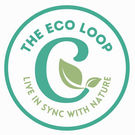
While choosing a toothbrush what are the criteria we look for?
A Flexi handle and a good grip, are the bristles soft medium, or hard, even what color we like.
However, we forget to take one very important criterion into consideration. The material from which our toothbrush is made.
Plastic is the most common material used for making toothbrushes. These simple tools are said to be very tough to recycle because of the different components they are made of. According to National Geographic toothbrushes are not recyclable since small parts get stuck in the machinery. Consequently, they get dumped in landfills. Every toothbrush that was ever made since 1930 may be still sitting somewhere leaching chemicals into the environment around it.
So, how exactly do plastic toothbrushes harm the environment?
The world population today is 7.8 billion. Dentists suggest we change our toothbrush every three months for proper dental hygiene. If we consider every single person follows the dentist’s recommendation sometime in the next three months, we are all going to throw 7.8 billion toothbrushes in the trash. According to the Library of Congress, if toothbrushes thrown each year in America alone are placed end to end, they can circle the earth four times. So, the problem is bigger than we thought. An estimated 100,000 sea birds and other marine animals die each year with stomachs full of plastic bags, toothbrushes, and a whole lot of general plastic trash and no place for real food. I think after knowing these statistics you must have understood how do plastic toothbrushes harm the environment.
Some solutions
It is never too late to shift to better alternatives. A bamboo toothbrush is an answer. It will radically cut down our toothbrush waste. Bamboo is a grass and the fastest growing plant out there. So, by the time we throw away our toothbrush in roughly three months the plant will have grown the length back and more. The discarded toothbrush handle will degrade completely in compost in approximately six months. Bristles can be removed with pliers and recycled along with other recyclables. So, a major part of the bamboo brush which is the handle is completely zero waste.
Our Bamboo brushes come in dentist-recommended soft bristles. According to dentists, brushing for two minutes, twice daily using a toothbrush with soft bristles is important for proper dental hygiene. Medium or hard bristles may harm the enamel and gums and make them sensitive. Also, it may sound odd to few, but hard bristles do not clean the teeth any better. So always go for soft bristles.
This amazing product is readily available in all leading supermarkets these days.
Conclusion
Remember that one small change in our morning routine can make a big difference to our environment.
Plastic is a highly versatile material, and it shouldn’t be used for anything that is supposed to be replaced every 3 months. We must try to substitute plastic with natural materials at every possible opportunity. Our toothbrush handle can be one of them.
Disclaimer
This blog is for information purposes only and is not intended to change anybody’s personal views. All the information provided in this blog is true to the best of my knowledge, but there may be omissions, errors, or mistakes. The blog should not be seen as advice of medical, legal, or any other type. I reserve the right to change or update the focus or content on my published or upcoming blogs at any time.
THE ECO LOOP and the author are not responsible for the accuracy, completeness, suitability, or validity of any information in this article. THE ECO LOOP does not assume any responsibility or liability for the same.
REFERENCES-
https://www.designlife-cycle.com/plastic-toothbrush
marine-conservation.org
